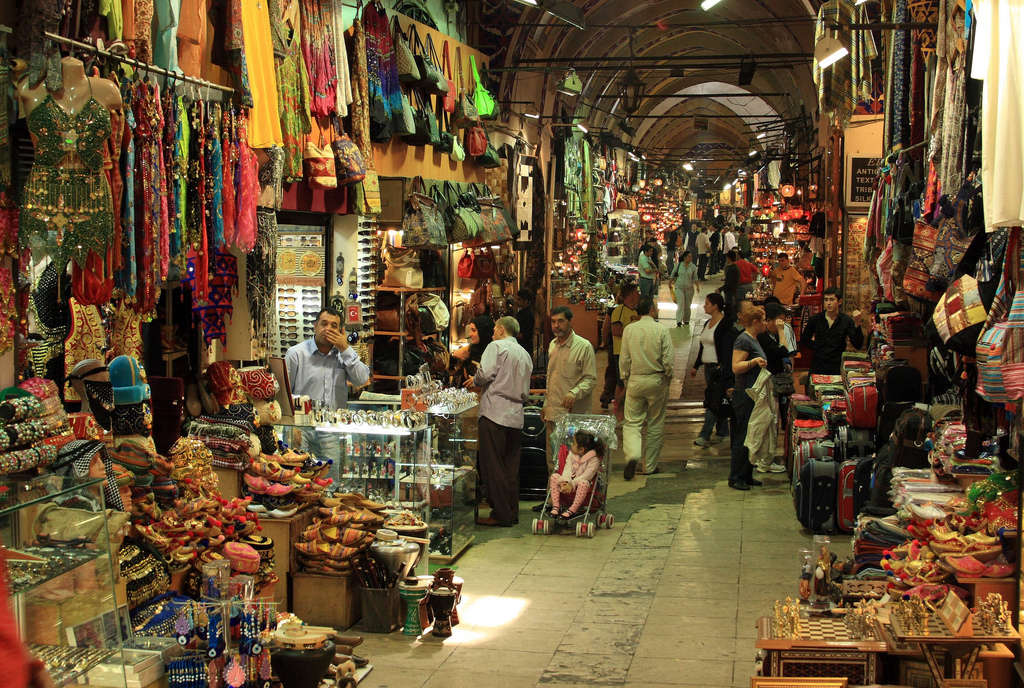All goods and services are related to each other through their prices. When we get our hair cut, the price of that service is immediately relatable to a cup of coffee, a chicken, a silver coin and so on and so forth.
For convenience, we refer to the price of a haircut in terms of currency. However, the currency is not required for an economy to work. It's only there for convenience. As such, it's of utmost importance that a currency is stable. The currency must act as if it is a commodity good, otherwise it loses its ability to relate relative prices over time.
As things stand at the moment, no currency can be used to relate prices over periods much more than a year. Historic prices for houses, wheat, pork, etc, cannot be directly related to current prices through modern currencies. It's a mistake to think that we are richer today than we were ten years back simply because the nominal price of our house is up. It's only after inflation is taken into account that we know if we have made or lost money on our purchase.
To calculate historic prices, we can either use inflation adjustments, or we can use a commodity as money. If we use inflation adjustments, we must trust the central bureau of statistics, and assume that their figures for price inflation are correct. We must both trust a third party and make a rather complicated calculation. However, if we choose a commodity as money, we can always figure out how much of our chosen commodity was required historically to purchase whatever we are looking into, and that commodity is by default gold.
Gold has been money for thousands of years, and is in fact still money. The prudent investor is still using gold prices, rather than government statistics when calculating profits and losses. Gold doesn't currently circulate as currency. That is true. However, it can easily come back into circulation if required. Gold never lost it's status as money. It was merely pushed aside by legal mandates. If legal tender laws were to disappear, gold would become currency again.
What makes gold money is the fact that it is a commodity good. It is used in jewelry and electronics. It takes part in the relative pricing that exists in any economy, and is therefore 100% reliable as a unit of account. It has a glorious past, and a predictable future. This is not the case for fiat and crypto-currencies. Neither fiat nor crypto are commodity goods. They can both disappear without inflicting permanent damage to the mechanism of relative pricing. However, if gold suddenly became impossible to price, relative pricing would in an instance become impossible. Jewelry and electronics would become impossible to place in the hierarchy of things, and the entire hierarchy of relative prices would come unglued.
This is why the gold market is such an important indicator of what's going on in the real economy. It indicates the level of trust we have in the artificial layer of currency that has been put upon the economy. As long as we trust central bankers to do the right thing and keep inflation at a tolerable level, gold will simply drift higher in line with inflation expectations. It may even drift lower for a while. However, the moment trust disappears, gold shoots up in price at a faster rate than all other prices in anticipation of a possible return to currency status.
Gold is the default currency of any economy because of the way it relates prices of all goods and services. The value of a piece of jewelry, relative to all goods and services is known, and it's known to be reasonably stable. Jewelry was valuable in the past, is valuable at present, and sure to be valuable in the future. We can therefore write contracts and set prices with confidence in gold.
The reason gold is money, and will remain money as long as there is an economy, is that it is a commodity good. There will always be a demand for it. The reason fiat and crypto will never raise beyond the status of currency is that they are not commodity goods. There is no need for these things in order to produce anything. They are not a part of the price hierarchy of essential goods and services. They are merely an additional layer that can be removed without any permanent damage to the economy.

No comments:
Post a Comment